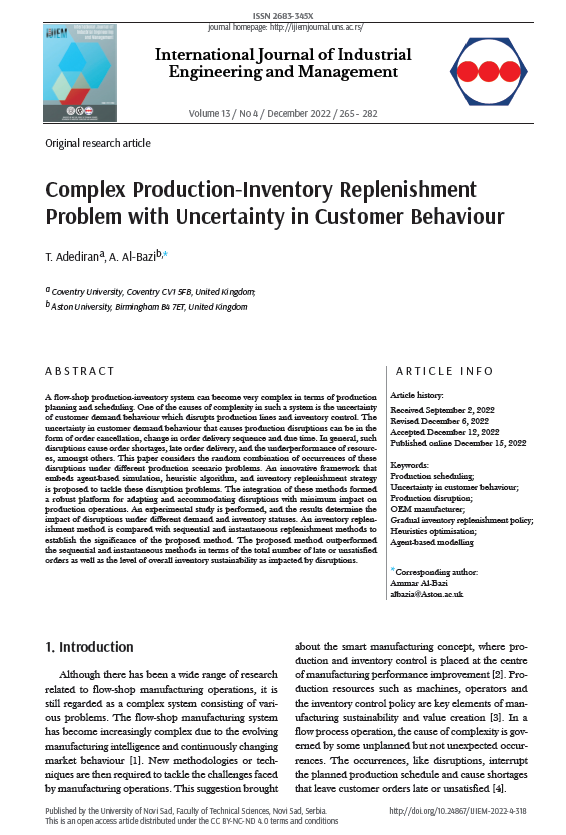Complex Production-Inventory Replenishment Problem With Uncertainty in Customer Behaviour

Published 2022-12-30
abstract views: 348 // FULL TEXT ARTICLE (PDF): 0
Keywords
- Production scheduling,
- Uncertainty in customer behaviour,
- Production disruption,
- OEM manufacturer,
- Gradual inventory replenishment policy
- Heuristics optimisation,
- Agent-based modelling ...More
How to Cite
Copyright (c) 2023 International Journal of Industrial Engineering and Management

This work is licensed under a Creative Commons Attribution 4.0 International License.
Abstract
A flow-shop production-inventory system can become very complex in terms of production planning and scheduling. One of the causes of complexity in such a system is the uncertainty of customer demand behaviour which disrupts production lines and inventory control. The uncertainty in customer demand behaviour that causes production disruptions can be in the form of order cancellation, change in order delivery sequence and due time. In general, such disruptions cause order shortages, late order delivery, and the underperformance of resources, amongst others. This paper considers the random combination of occurrences of these disruptions under different production scenario problems. An innovative framework that embeds agent-based simulation, heuristic algorithm, and inventory replenishment strategy is proposed to tackle these disruption problems. The integration of these methods formed a robust platform for adapting and accommodating disruptions with minimum impact on production operations. An experimental study is performed, and the results determine the impact of disruptions under different demand and inventory statuses. An inventory replenishment method is compared with sequential and instantaneous replenishment methods to establish the significance of the proposed method. The proposed method outperformed the sequential and instantaneous methods in terms of the total number of late or unsatisfied orders as well as the level of overall inventory sustainability as impacted by disruptions.
Article history: Received (September 2, 2022); Revised (December 6, 2022); Accepted (December 12, 2022); Published online (December 15, 2022)

